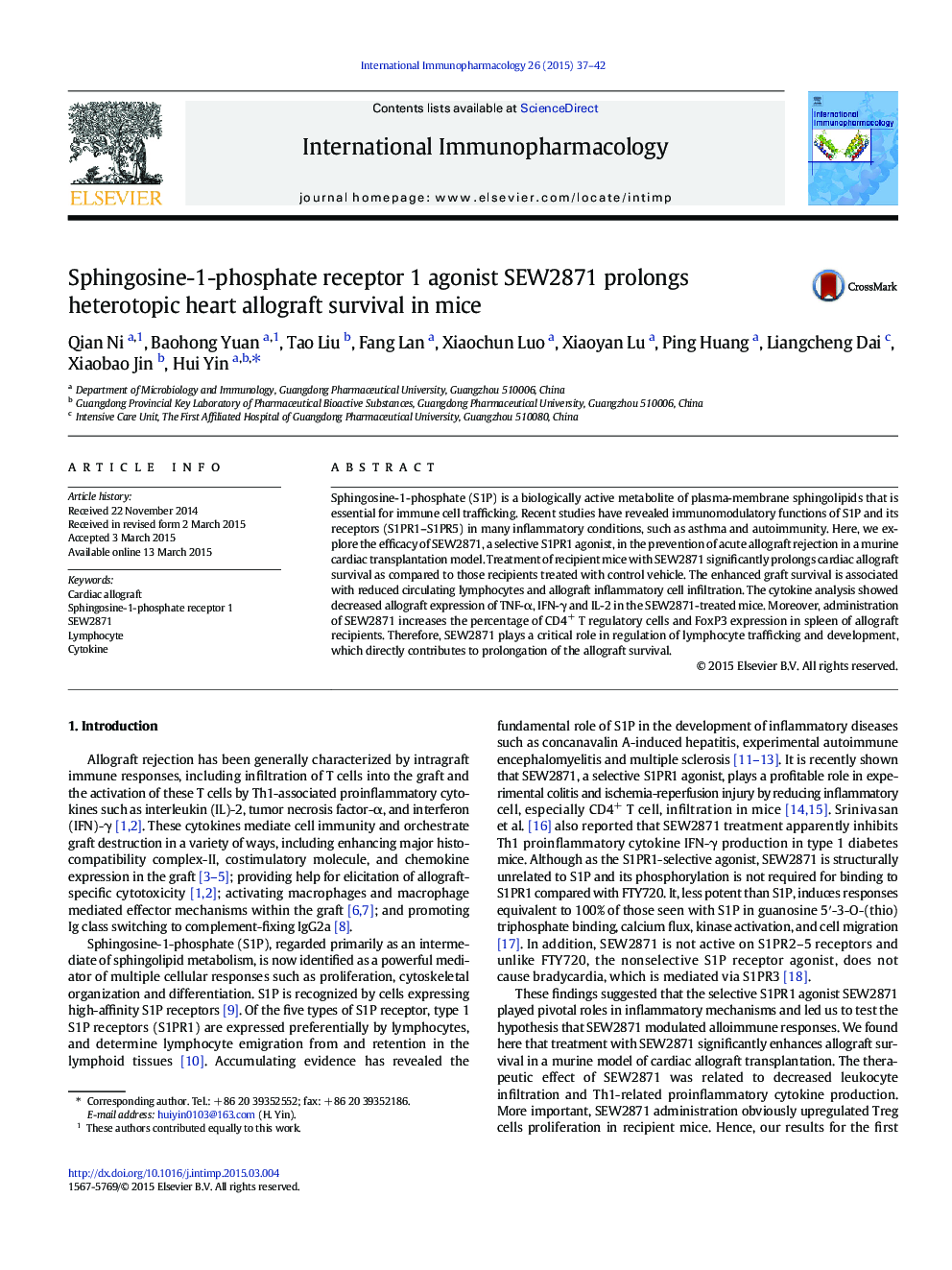| Article ID | Journal | Published Year | Pages | File Type |
|---|---|---|---|---|
| 2540735 | International Immunopharmacology | 2015 | 6 Pages |
•Administration of S1PR1 agonist SEW2871 prolongs cardiac allograft survival in mice.•SEW2871 reduces circulation leukocytes and allograft inflammatory cell infiltration.•SEW2871 inhibits T lymphocyte migration and Th1-type cytokine expression in the allograft.•The beneficial effect of SEW2871 is also related to modulation of Treg cell development.
Sphingosine-1-phosphate (S1P) is a biologically active metabolite of plasma-membrane sphingolipids that is essential for immune cell trafficking. Recent studies have revealed immunomodulatory functions of S1P and its receptors (S1PR1–S1PR5) in many inflammatory conditions, such as asthma and autoimmunity. Here, we explore the efficacy of SEW2871, a selective S1PR1 agonist, in the prevention of acute allograft rejection in a murine cardiac transplantation model. Treatment of recipient mice with SEW2871 significantly prolongs cardiac allograft survival as compared to those recipients treated with control vehicle. The enhanced graft survival is associated with reduced circulating lymphocytes and allograft inflammatory cell infiltration. The cytokine analysis showed decreased allograft expression of TNF-α, IFN-γ and IL-2 in the SEW2871-treated mice. Moreover, administration of SEW2871 increases the percentage of CD4+ T regulatory cells and FoxP3 expression in spleen of allograft recipients. Therefore, SEW2871 plays a critical role in regulation of lymphocyte trafficking and development, which directly contributes to prolongation of the allograft survival.
